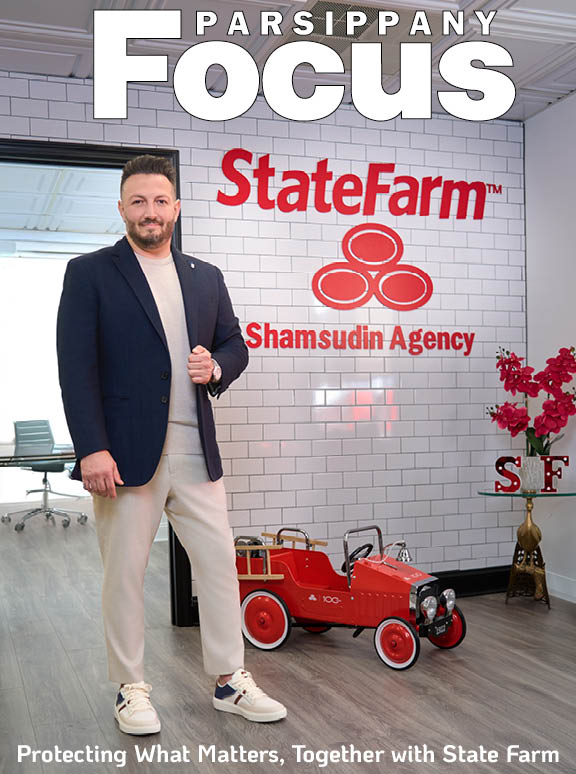PARSIPPANY — Parsippany Police say the pool party started a little too early for one Parsippany business and charged its owner, Kenneth Spilatro, 59, with violating emergency orders by allowing customers inside his store, Pelican Pool and Patio, located at 2980 Route 10 West.
Non-essential retail businesses cannot resume indoor sales until June 15, 2020.
Spilatro was charged on Saturday, May 30 by the Parsippany Police Department with violating the emergency orders by allowing customers inside the business. Police found 20 to 30 people shopping at Pelican Pool and Patio. The store is permitted to conduct curbside pickup only. The Parsippany Police had previously warned the owner the previous day.
Also in Morris County, Randolph Police charged Clifton resident Thaer Imleh, 50, with violating the governor’s orders on Saturday, May 30 by having workers wash and dry cars by hand at his South Salem Street business, Clean Way Hand Car Wash. He had been warned previously, they indicated.
In addition, Randolph Police charged Jennifer Rogers of Hackettstown with violating Murphy’s Law by issuing two summons for holding a peaceful rally at her business, Randolph Tennis Club. (See related article by clicking here)
“We’re cracking down on those who jeopardize public health and undermine public safety,” Grewal said in a joint statement.
Praising citizens who have sacrificed “for the greater good,” Callahan added: “Those who choose to ignore the law and selfishly place others at risk will face swift law enforcement action.”
Violating emergency orders is a disorderly person offense, charged by a summons, without arrest. A conviction can bring up to six months in jail and fines of up to $1,000.
Grewal said the state Division of Consumer Affairs has been busy battling pandemic price gouging: Some 108 subpoenas have been issued to retailers and online marketplaces reported by consumers alleging unfair price increases and other unscrupulous practices.
Another 1,586 cease-and-desist letters have been sent, warning retailers of penalties for violating New Jersey’s price-gouging law and the Consumer Fraud Act during a state of emergency.
A total of 5,161 complaints have been made against 2,656 businesses during the COVID-19 crisis. Nearly 83 percent of complaints allege unlawful price hikes on essentials such as food, bottled water, cleaning products, and personal protective equipment including masks, disinfectants, and sanitizers.
Grewal said examples of alleged price hikes reported by consumers include:
- a dollar store allegedly charging $6.99 for a box of gloves that previously cost $3.99.
- a deli allegedly selling a single roll of toilet paper for $1.50 and small bottles of hand sanitizer for $5.
- a grocery store allegedly charging $4 for a roll of paper towels or $48 for a package.
- a dollar store allegedly raising the price of rubbing alcohol from $1.29 to $8.99.
- a discount store allegedly increasing the price of bleach from $3 to $10.
- a pharmacy allegedly selling a can of Lysol disinfectant spray for $12.
- a department store allegedly charging $15 for an 80-count package of Lysol disinfectant wipes that normally cost $5 or $6.
Consumer Affairs also is investigating complaints about refund practices. There are 413 reports of health clubs, hotels, ticket agents, and other businesses allegedly refusing to issue refunds after they closed or suspended services in the pandemic, the statement says.
New Jersey’s price-gouging law took effect on March 9, when Governor Phil Murphy declared a state of emergency. A price increase is considered excessive if:
- The new price is more than 10 percent higher than the price charged during the normal course of business prior to the state of emergency, and
- The price increase is not caused by added costs imposed by the seller’s supplier or added costs of providing the product or service because of the emergency.
Civil penalties for price-gouging and other consumer fraud violations range from up to $10,000 for the first violation to $20,000 for subsequent violations. Restitution and fees can be tacked on; each sale is considered a separate violation.
Complaints may be filed by clicking here.
This past week, four bars and two craft breweries also face possible 10-day liquor license suspensions by the state Division of Alcoholic Beverage Control for allegedly serving food and/or alcohol in their establishments, in violation of emergency orders, Grewal said.
Three of those businesses also were slapped with $750 fines for violating COVID mask requirements.
They are Black Cat Bar & Grill, Absecon; Tavern 519, Kingwood; Woody’s Roadside Tavern, Farmingdale; Human Village Brewing Co., Pitman (additional $750 fine for mask violations); Kelly Green Brewing Co., Pitman (additional $750 fine for mask violations); and Robert’s Place, Margate (additional $750 fine for mask violations).
Since the state of emergency began, at least 39 people have been charged with second-degree terroristic threats during an emergency for “spitting, coughing, or otherwise threatening to deliberately expose officers, medical personnel, or others to COVID-19,” according to the statement.
“We have zero patience for those who spit on cops, gouge prices, or try to exploit this pandemic for their personal gain,” Grewal said.
Second-degree offenses carry penalties of five to 10 years in state prison and up to $150,000 in fines.
Third-degree charges carry a sentence of three to five years in prison and a fine of up to $15,000, while fourth-degree charges carry a sentence of up to 18 months in prison and a fine of up to $10,000.
Grewal and Callahan ask anyone who sees noncompliance with the governor’s emergency orders to contact local police or click here.















